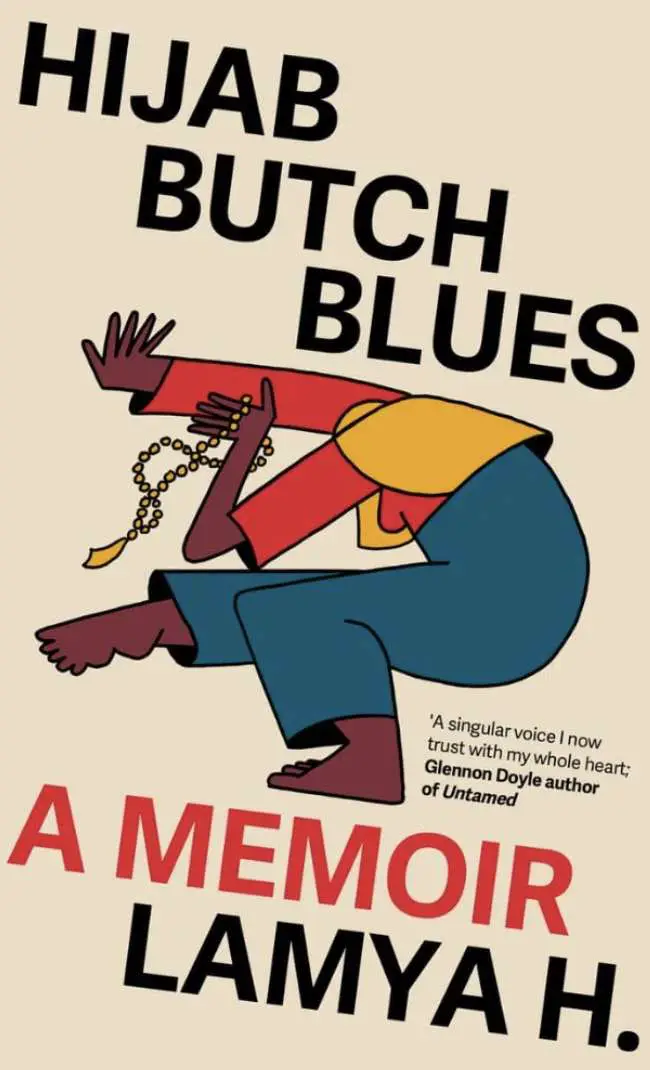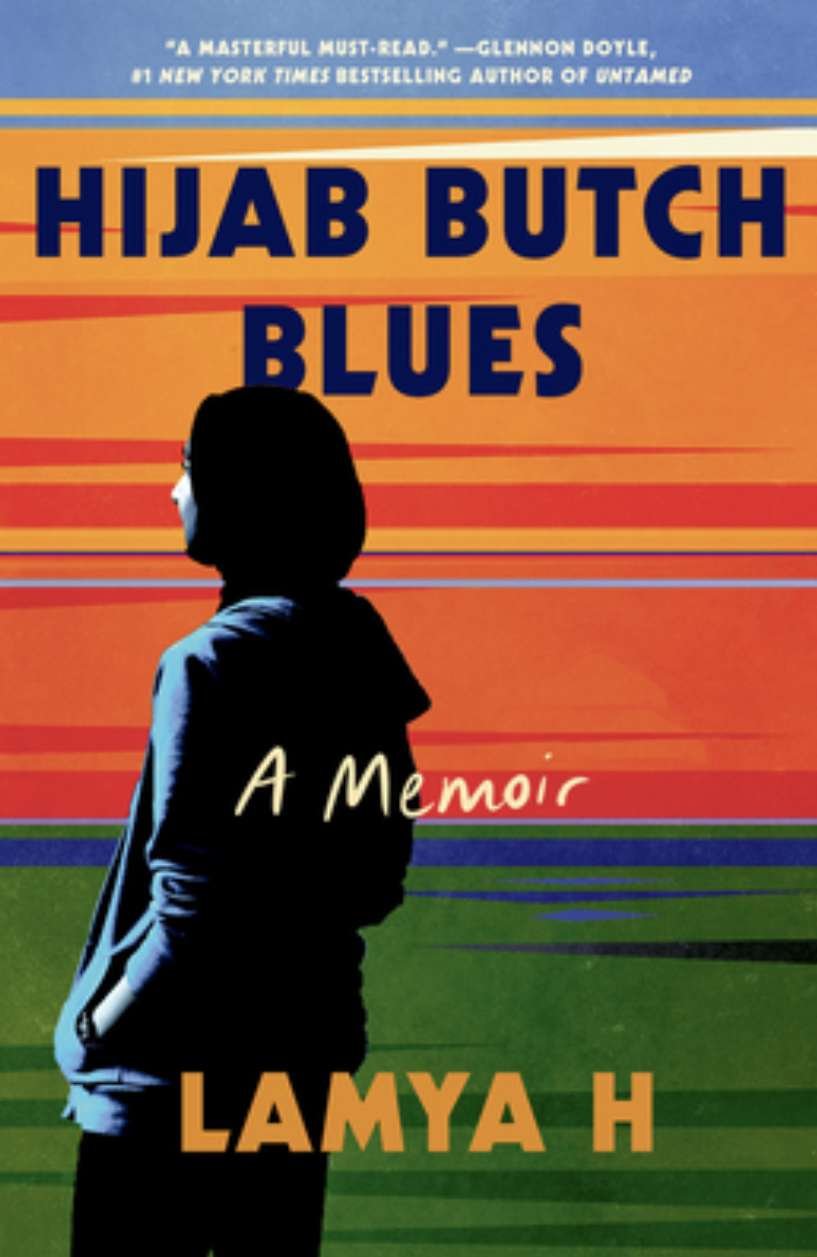It’s February which means it’s LGBTQ+ History Month in the UK and we don’t know about you, but we’re always looking to expand our queer reading lists. Fear not, because we have the perfect book for you to kick off LGBTQ+ History Month- introducing Lamya H.’s glorious debut, Hijab Butch Blues.
Described by queer writer and icon Glennon Doyle as ‘a singular voice I now trust with my whole heart’, Lamya H’s writing is raw and powerful whilst remaining digestible and relatable. No matter where you are in your coming out journey, whether you’ve been out for years, you’re preparing to tell people, or you’re coming out to yourself, something in this memoir will resonate with you as Lamya offers queer people her stripped back experiences.
We devoured this book in a matter of days whilst also trying to savour every word so you know it’s immediately added to the reread list.
‘I’ve learned to reframe telling people as inviting in, instead of coming out’
The memoir follows Lamya through a number of stages in her life, bouncing through a variety of ages to present a collection of vignettes and integral moments within Lamya’s story. At each step of her journey, she returns to her faith and uses stories from the Quran to further illustrate her experience. This was a powerful tool in grounding each moment and for the reader to understand the gravity of every situation and how Lamya turned to her faith throughout her life and what that means for her.
We were lucky enough to chat with Lamya about her memoir, Twitter, and the importance of rage for her.

Let’s start at the beginning. The title takes inspiration from Leslie Feinberg’s Stone Butch Blues, a groundbreaking piece of queer literature, and a book that Lamya says ‘made my writing possible’. This is why, similarly to Feinberg’s classic, Lamya resonated with the term ‘call to action’ which is so often used in conjunction with Feinberg’s work. However, Lamya described how the writing process itself was a call to action, like ‘a way to channel my rage at injustice into a more productive, generative form and to think through the world I want to live in’.
Although the memoir tackles hard-hitting topics, the humour weaved throughout is overwhelmingly natural and brings the reader in close, as though we’re having a personal chat with Lamya. The reader is involved in not only Lamya’s story, but their own too, as recognisable scenarios allow us to reflect on our own experiences and perhaps have realisations about our own identities.
‘A large part of this book is figuring out how to live’
It’s clear this is an incredibly powerful book and one that shouldn’t go unnoticed, particularly as it will most certainly resonate with countless people. We asked Lamya who she would want to read this, and she explained that she would want this book to fall into the hands of ‘anyone living with marginalised identities who don’t have a model of how to live’. This is something many of us understand, having grown up without the LGBTQ+ representation we have today- and there are an endless amount of stories to be shared and represented.
Something so touching about this memoir is the journey the reader goes on alongside Lamya, as a large part of the book documents ‘trying out different things, noticing in myself what worked and what didn’t work for me’. This, again, circles back to her driving force of figuring out how to live without models and going on to provide a model through this book.
‘Anger is so powerful and totally underrated’
Lamya is, in her own words, ‘too angry to be your tragic narrative’ and her words in Hijab Butch Blues certainly support that. Using ‘rage as a response to injustice’ came up time and time again, creating an angry undercurrent that runs through the memoir. We discussed how often times people shy away from anger or perceive it as completely negative when, especially in Hijab Butch Blues, it has the power to create change.
Lamya values anger as a tool for change and this is reflected in her absolutely iconic Twitter handle- @lamyaisangry. Discussing this, she detailed how this had a number of different meanings for her. ‘I made that handle when I wrote my first essay because I was angry and was using the rage as something generative. Anger is so powerful and totally underrated, it’s seen as this big negative thing but it’s so powerful in terms of being something you can use to fight for a better world.’
This Twitter handle is also a valuable tool due to ‘Lamya H.’ being a pseudonym and the importance of anonymity whilst publishing this vulnerable piece of writing. This is brought up in the book itself, but also in our conversation. Lamya noted that she’s still working on ‘self-protection’ which can come up in a variety of forms, like ‘being unapologetic about not doing video calls’ because it’s ‘so easy to fall into apologising for that’.
A large takeaway from Hijab Butch Blues is remembering that self-protection isn’t weakness, and Lamya reiterated that to us- ‘self-protection is a constant battle that never gets easier, but practice helps make it feel easier, even if it isn’t’. In our culture where coming out is still something a lot of queer people feel they ‘have to’ or ‘should’ do, it’s great to hear someone display self-protection as something difficult but worth it, as an act of strength and power.

‘Not giving up, not punishment, but protection’
Looking to the future, Lamya isn’t done yet. She mentions that writing non-fiction is ‘helpful’ and something she doesn’t plan to stop doing. We are more than happy to hear that and are already on the look out for whatever she cooks up next!
Describing writing as ‘an act of problem solving’, Lamya is still angry and still has more to say. The constant striving for this potentially ‘unattainable utopia’ where ‘everything is rooted in love’ she references towards the end of the memoir can seem daunting. However, Lamya believes ‘the idea of attainability is less important than the working towards, the dreams,’ and that is crucial to remember. Too often, we can feel swamped by the intimidating and seemingly impossible ‘perfect’ future, that we forget that the dreams and hopes for that future are what will help us get there.
On a closing note, Lamya recommended us some fab queer books to add to your reading list- Stone Butch Blues by Leslie Feinberg (of course), Bastard Out of Carolina by Dorothy Allison and the work of Dionne Brand.
We had an amazing time chatting to Lamya and are extremely excited to follow her next steps in the writing and activism world!
When can I read it??
We know you’re dying to know so we’ll tell you- the release date is TODAY, 2nd February in the UK and 7th February in the US so not long until you can get your hands on a copy!
If you’re wondering what other queer books we recommend, check out our list and now you’ve got recs from Lamya too, bonus queer content!
Team Nonchalant x


